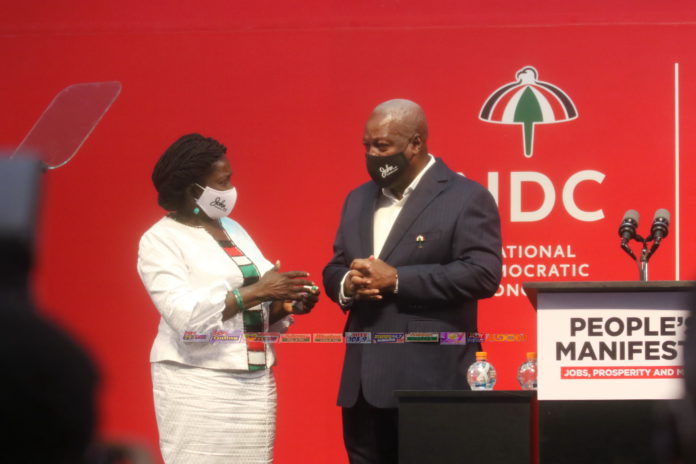The opposition National Democratic Congress (NDC) on Monday, September 7, 2020 launched its manifesto for the 2020 elections in Accra.
Speaking at event, the Chairman of the Manifesto Committee of the NDC, Professor Danso Boafo stated that the NDC’s manifesto is based on verifiable and reliable data.
Prof. Danso said the NDC’s manifesto titled ‘The People’s Manifesto’ was well researched and views taken from people across the country.
Vice Presidential candidate of the NDC, Professor Naana Jane Opoku-Agyemang, touched on what the party will do in education.
Amongst the many things she said, below are five of them;
Private schools to join Free SHS
The NDC has promised to include private schools to the Free Senior High School programme introduced by President John Akufo-Addo.
Professor Naana Jane Opoku-Agyemang, stated that a future NDC administration will make the free SHS better and more inclusive.
Abolish double-track
The NDC also promised to construct more SHSs across the country to abolish the NPP’s double track system.
Absorb 50% fees of university students next academic year
Prof. Naana Jane further said, the next NDC administration will transform the country’s education to meet 21st-century demands.
She noted that NDC administration will absorb 50% of fees for the 2020/21 academic year for all university students “as an incentive to mitigate the effects of Covid-19 on students and their families”.
Free tertiary education for people living with disability
The NDC says it will offer free tertiary education for people living with disability if the party wins the 2020 elections.
Reform laweducation
On law education, the NDC manifesto said: “vigorously reform and expand access to professional legal education and provide opportunities to all qualified LLB holders by granting accreditation to certified law faculties to undertake the professional law qualification course.
“Review the Legal Profession Act in consultation with stakeholders, and establish a Council for legal education and training, to accredit certified law faculties to run the Professional Law Course subject to the oversight supervision of the Council. Establish a faculty of law in the Northern Region to serve the northern sector”.

